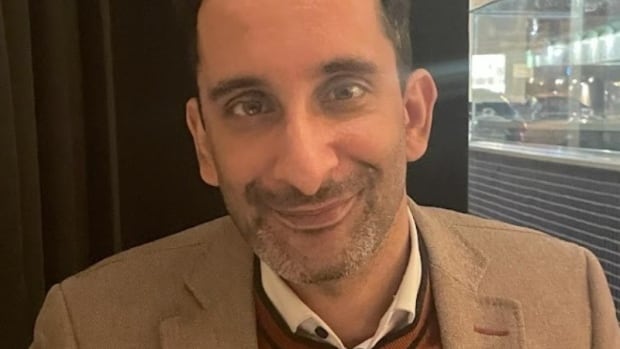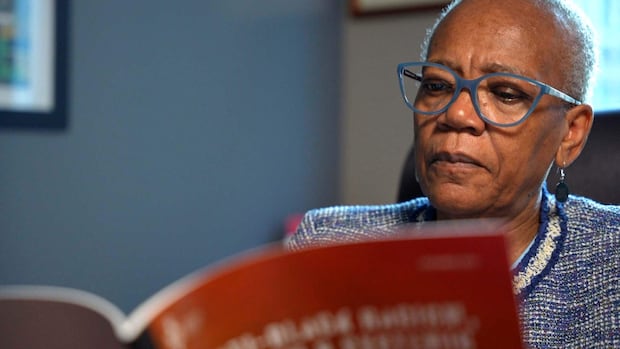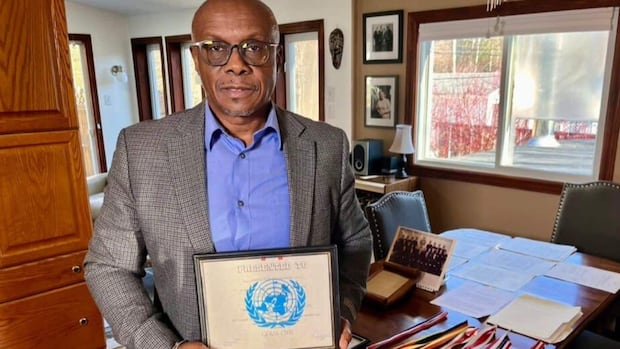
The federal government now says Birju Dattani, the new head of the Canadian Human Rights Commission, did disclose the alias he used to make controversial social media posts — after it initially claimed that information was never shared before he was hired.
Justice Minister Arif Virani’s spokesperson confirms that Dattani did pass on the alias to “public servants as part of the security assessment of Mr. Dattani.” The minister’s press secretary, Chantalle Aubertin, added that the name was not provided to Virani’s office.
The news raises new questions about what the federal government knew — or ought to have known — about Dattani before he was appointed to lead the country’s human rights watchdog, the Canadian Human Rights Commission (CHRC).
In June, Dattani was named the CHRC’s chief commissioner, making him the first Muslim or racialized person to head the organization.
Shortly after his historic appointment, national Jewish organizations cited what they described as antisemitic social media posts made under the name “Mujahid Dattani” and a controversial appearance on a debate panel in the U.K.
The Centre for Israel and Jewish Affairs (CIJA) accused Dattani of posting articles on X, formerly Twitter, that compared Israel to Nazi Germany. The posts and Dattani’s account appear to have been deleted.
CBC News has not seen the alleged posts. Dattani himself has said he did not compare Israel to Nazi Germany. He said he did share without comment an article comparing the plight of Palestinians to that of prisoners in the Warsaw Ghetto during the Second World War, adding that he didn’t agree with the article’s argument.
In 2015, Dattani also spoke on a panel in the U.K. alongside a member of Hizb ut-Tahrir, an Islamic fundamentalist group that seeks to establish a new caliphate and opposes Israel’s existence.
Dattani said he was unaware of the other panellists’ affiliations and had never met them before.
The minister’s office did not confirm that Dattani used the alias “Mujahid Dattani” online and did not respond to follow-up questions from CBC. It did say that “a formal, independent review” has been launched into the matter and a public report will be published before Aug. 8, when Dattani is supposed to assume his new role.
CBC reached out to the Justice Department. The Privy Council Office (PCO) — the secretariat serving the federal cabinet and the prime minister — replied, saying that “due to the application of the Privacy Act and for confidentiality reasons, PCO is not able to comment further.”
The Conservative Party of Canada has called on the federal government to rescind Dattani’s appointment and wants the House of Commons justice committee to probe the matter. Conservatives have accused the government of investigating itself.
Conservative deputy leader Melissa Lantsman said the government could easily have learned more about Dattani’s past through a Google search.
“It’s either complete incompetence or something more nefarious,” Lantsman said, reacting to the news that Dattani provided his alias to the government through the vetting process.
Despite the backlash, several groups issued joint or individual statements calling the demands for Dattani’s dismissal “deeply concerning.” His former employer, the Yukon Human Rights Commission, issued a statement of support for their former director.
The National Council of Canadian Muslims (NCCM) called Dattani’s treatment “little more than a witch hunt.” It added that the government should have stated earlier that the alias was disclosed during the appointment process.
“Canadians deserve to have clarity on such matters. We look forward to a fair and balanced process that fully clears Mr. Dattani’s name,” said Fatema Abdalla, NCCM advocacy officer.
The Black Class Action Secretariat has called for reforms at the CHRC in response to reports of anti-Black racism within the organization.
The secretariat is among the groups raising concerns about the calls to dismiss Dattani.
Reacting to the news that the government knew about Dattani’s online alias, Nicholas Marcus Thompson, the secretariat’s executive director, suggested the government was trying to “scapegoat” Dattani for political reasons.
“It appears that the government is trying to shift blame to the applicant, Mr. Dattani, in this process,” Marcus Thompson told CBC News. “After all, it’s now coming to light that he did provide information about his alias, which he was required to do.”
A Senate committee report says anti-Black racism and other forms of discrimination are pervasive at the Canadian Human Rights Commission and the federal public service.
CBC has seen a blank copy of the application form Dattani would have used to inform the government of his online alias. The form states the Privy Council Office needs the information to determine the candidate’s “suitability for public office.”
It also says applicants undergo background checks through the RCMP, the Canadian Security Intelligence Service (CSIS) and the Canada Revenue Agency, along with “a search of publicly available records (including social media, court records, news reports, etc.)”
Dattani would have had to clear the PCO background check before being appointed to the top job at the CHRC.
Through his lawyer Muneeza Sheikh, Dattani declined to comment.
Sheikh referred CBC to a statement she issued about her client. In it, she said Dattani was “the victim of a smear campaign by a small number of organizations looking to discredit him and the CHRC.”
“Some of these organizations (and people) have demonstrated a pattern of attacking Muslims in leadership positions,” she added. “They have accused Mr. Dattani of hiding his past online conduct from the CHRC — this is false.”
In an interview, CIJA’s vice president of external affairs and general counsel Richard Marceau said there’s a problem with the federal government’s vetting process.
“If they willingly appointed somebody with this problematic past … that would be very worrisome for the Jewish community,” Marceau said.
Liberal MP Marco Mendicino said “there are significant deficiencies” in the screening process for public appointments that need to be fixed.

“A rigorous vetting process is required so that the public can have the utmost confidence in the chair and the CHRC as a protectorate of human rights in our democracy,” Mendicino said in an email.
Dattani’s appointment to the CHRC comes as the commission faces intense scrutiny.
In March 2023, the federal government reported that the CHRC had discriminated against its Black and racialized employees. The government’s human resources arm, the Treasury Board of Canada Secretariat (TBCS), came to that conclusion after nine employees filed a grievance through their unions in October 2020.
Canada’s human rights commission admits it has dismissed a large number of complaints about racism, with numbers showing the commission dismissed a higher percentage of race-based claims than it did others between 2018 and 2021.
A United Nations-affiliated oversight body is now reviewing the CHRC’s accreditation with the UN Human Rights Council (UNHRC).
The Department of Justice also ordered last year an external investigation into claims that Michael Gottheil, CHRC’s accessibility commissioner, had mistreated staff.
In a statement sent through his lawyer to CBC News, Gottheil confirmed the existence of the investigation but said his understanding at the time was that no formal complaints had been filed.

